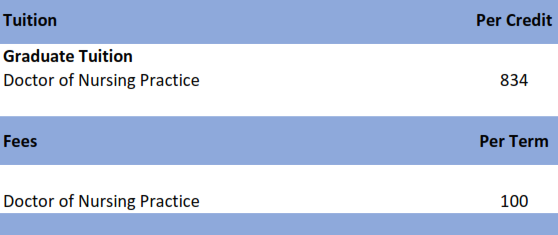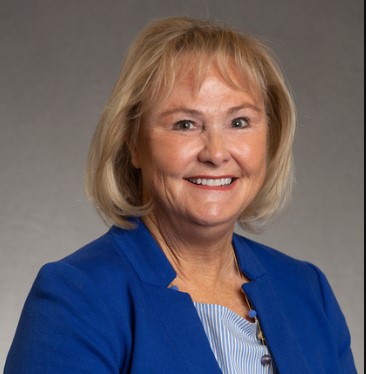Concentration Overview
The Family Nurse Practitioner (FNP) Doctor of Nursing Science Program (DNP) program focuses on skills and competencies to provide primary care in the community to patients across the lifespan. Graduates will become leaders in practice innovation, develop plans for comprehensive care management that address the multi-dimensional needs of patients and families, and advance health quality improvement. Coursework is designed to provide the student with skills to understand the complexities of the health care delivery system to influence change and develop policy that improved patient outcomes in a variety of settings.
Graduates of the BSN-FNP concentration will:
- Obtain health histories and perform physical exams;
- Order and interpret laboratory and imaging studies;
- Diagnose and design plans of care;
- Collaborate and communicate with patients, families, and other members of multidisciplinary healthcare teams;
- Lead innovative strategies that promote safe, cost-effective, equitable, patient-centered care; and
- Participate in quality improvement projects with opportunities to disseminate work through regional and national meetings, and publication in peer-reviewed journals.
- You will earn your FNP along with attaining your DNP allowing you to practice at the highest level and gaining exemplary leadership skills.
Concentration Highlights
Experienced Faculty
From the classroom to clinical settings, our highly skilled clinical faculty bring their real-world experience to bear throughout the full learning process and maintain active clinical practice. Our students also benefit from expert guest faculty from Barnes-Jewish Hospital and Washington University School of Medicine, which complement the program’s didactic and lab components.
Small Class Sizes and Individual Support
Our small class sizes allow for personalized attention as each student progresses through the program and our curriculum.
Convenience
The FNP concentration is delivered online. However, students will be expected to visit campus 1-2 times in some courses such as Advanced Health Assessment and Skill courses. Goldfarb School of Nursing is conveniently located on the Washington University Medical Center campus.
State-of-the-Art Clinical Simulations
We offer high-fidelity patient simulations through our world-class Clinical Simulation Institute. These active learning experiences provide students with additional exposure to problems that are frequently encountered in acute and critical care settings or those that may result in significant morbidity and mortality.
Accreditation
Graduates of the accredited Family and Individual Nurse Practitioner concentration will be prepared and eligible to take either the American Nurses Credentialing Center (ANCC) or the American Academy of Nurse Practitioners (AANP) certification exam for Family Nurse Practitioners.
Career Prospects
Graduates of the accredited Family Nurse Practitioner concentration will be prepared to care for families across the lifespan in a variety of primary care settings including urgent care.
Successful Program Outcomes
- Integrate, translate, and apply scientific underpinnings to improve nursing practice, clinical judgement and patient outcomes within the four spheres of care (Essentials domain: 1, 4);
- Design, implement, and evaluate safe, evidence-based, person-centered, compassionate care (Essentials domain: 2, 4, 5);
- Influence population health, including improvements in health care policy, utilizing effective collaboration and advocacy strategies to ensure diversity, equity, and inclusion (Essentials domain: 3, 4, 6);
- Employ nursing scholarship to advance nursing practice, optimize care, address health inequities, and take actions that target high priority social determinants of health (Essentials domain: 4);
- Apply principles of quality improvement, ethics, and safety at both the individual and systems levels (Essentials domain: 5);
- Effectively communicate and collaborate with care team members, patients, families, communities, and other stakeholders to optimize care, enhance the healthcare experience, and strengthen outcomes (Essentials domain: 6);
- Lead innovative strategies that promote the provision of safe, cost-effective, equitable care to diverse patient populations across complex healthcare systems (Essentials domain: 7);
- Utilize information systems, communication technology, and informatics to improve and transform healthcare systems (Essentials domain: 8);
- Demonstrate professionalism, including participation in activities that support nursing’s professional identity, accountability, ethical principles, and values (Essentials domain: 9);
- Participate in activities and self-reflection that foster personal health, resilience, well–being, lifelong learning, competence, and leadership (Essentials domain: 10).
Sample Course Sequence
NOTE: Courses and sequencing are subject to change.
Didactic 1 credit hour = 15 contact hours
Clinical 1 credit hour = 60 clinical contact hours
Total contact hours = 1770
| Term 1 | Credit Hours | Didactic Contact Hours | Clinical Contact Hours |
| NURS 6420 Health Promotion Theory & Population Health | 3 | 45 | - |
| NURS 6523 Foundations of Scholarly Writing & Evidence Based Practice | 3 | 45 | - |
| Term 2 | |||
| NURS 6327 Health Systems Policy | 3 | 45 | - |
| NURS 6500 Leadership & Collaboration for Quality & Safety | 3 | 45 | - |
| Term 3 | |||
| NURS 5110 Pharmacotherapeutics | 3 | 45 | - |
| NURS 6328 Professional Aspects of Advanced Practice Nursing | 3 | 45 | - |
| TERM 4 | |||
| NURS 5101 Advanced Pathophysiology for Primary Care | 3 | 45 | - |
| NURS 6325 Informatics, Economics, & Financial Principles | 3 | 45 | - |
| TERM 5 | |||
| NURS 5121 Advanced Health Assessment * | 3 | 30 | 60 |
| NURS 6240 Systems-Based Practice & DNP Project I* | 3 | 30 | 60 |
| TERM 6 | |||
| NURS 5805 Adult Gero Primary Care I | 3 | 45 | - |
| NURS 5808 Adult Gero Primary Care I Clinical *** | 4 | - | 240 |
| NURS 6122 Skills & Procedures for Primary Care NP | 3 | 45 | - |
| TERM 7 | |||
| NURS 5965 Adult Gero Primary Care II (Add additional women’s health) | 3 | 45 | - |
| NURS 5968 Adult Gero Primary Care II Clinical **** | 4 | - | 240 |
| Term 8 | |||
| NURS 5971 Family Centered Care for Infants Children and Adolescents Theory | 3 | 45 | - |
| NURS 5972 Family Centered Care for Infants Children and Adolescents Clinical **** | 5 | - | 300 |
| Term 9 | |||
| NURS 6241 Systems – Based Practice & DNP Project II** | 3 | 15 | 120 |
| NURS 6242 Systems – Based Practice & DNP Project III** | 3 | 15 | 120 |
| TOTAL | 61 | 630 | 1140 |
Admission Requirements
The following items are required when applying to the Family Nurse Practitioner Program:
- BSN from a regionally accredited institution of higher learning
- Minimum cumulative GPA of 3.0 on 4.0 scale in all undergraduate coursework
- Unencumbered/unrestricted RN license in good standing, Current CV or resume
- Current BLS provider status
- Official transcripts from all institutions where credit was earned
- Two letters of reference from individuals who can address the applicant’s academic and clinical potential
- Personal statement that addresses desired area of specialization, personal attributes, program, and career goals
Tuition and Fees
Barnes-Jewish College Goldfarb School of Nursing reserves the right to adjust tuition and fees at any time. For additional information, please contact our Business Office.

Faculty

Request Information
Request more information by filling out the form below.

